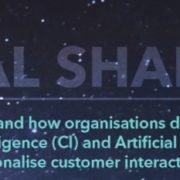Account Management in Financial Services – Expert Salesmen or Experts Who Can Sell?
How good are you at selling and managing relationships within an expert-led industry?
In this article, we look at the role of the sales and/or account management team in creating and building trust, stick-ability and differentiation. In provider-client relationships, balancing technical expertise and sales/account management skills helps ensure long-term benefit for both parties. Without that balance, winning new business, cross-selling and retaining customers all become much harder. From our experience, our B2B database and academic research, in order to develop trust-based relationships, you need account managers who:
- Know what they are talking about.
- Are empowered to make decisions.
- Don’t just ‘pop up’ around contract renewal time.
- Understand and represent your strategy, culture and values.
- Ensure that your organisation delivers!
- Provide insight, solutions and strategic value.
In many industries, product experts are not involved in sales or relationship management, for good reasons. Nevertheless, clients or intermediaries helping clients with their buying decision expect the sales and account management teams with whom they work to be experts in their field and empowered to make decisions. However, if your technical experts support inexperienced account managers, this may disempower the latter, while the customer seeks the experts. This undermines account managers and makes it less likely that customers will trust them to represent their best interests.
This applies to complex commercial financial services products. Clients and brokers want to deal directly with decision makers or at least have access to them. While they may recognise the role of relationship managers in managing the relationship e.g. liaising with claims departments, coordinating risk engineering site visits, designing a programme structure, negotiating wordings or coverage or obtaining a price, they want to speak to the individual with the ‘pen’.
To complicate things further, brokers often divide things between ‘strategic’ brokers who work on the programme structure and coverage, and ‘placing’ brokers who aim to get the best price for what the strategic broker specifies. This complicates negotiations for sales teams and may lead to commoditisation, which may not be in the interests of the client, the broker or the provider. As our earlier article showed, the most valuable relationships for clients and providers are based on a trust that supports interdependence, loyalty and mutual benefits.
So how can product providers meet the needs of their clients and broker partners who want to deal with empowered experts?
There are four options:
- The “Expert Hybrid”
The toughest option, but a great solution for providers (and also clients and brokers) is to recruit and/or develop individuals who are real technical experts, with great sales and negotiation skills and the ability to create trust. However, this combination is hard to find. You may end up with a “jack of all trades” rather than an all-round expert. Worse, you may find this person struggling to cope with the compromise between sales and profit.
- Experts trained to trade
Many companies have developed ‘trading’ and account management skills in their product experts. Evidence of the demand for this is from the many providers who offer training in this area! However, training for experts must be tailored in language, style and content. Many general training programmes, e.g. negotiation skills or presentation skills, have little impact as the experts ‘switch off’ if they don’t feel the training applies to them.
Also, experts may want to focus on their strengths and excel at being experts, rather than developing their broader skills. Some just don’t have the ability to broaden their skills and you will never want to put them in front of an important client or broker! One of the risks in this option is that you may end up with their expertise being the dominant characteristic. Consequently, they may be too adverse to risk or focused on their own specialism and struggle to develop a broader account perspective.
- Salespeople with enhanced technical skills
Developing greater technical skills in your sales and relationship management teams and empowering them to make decisions with clients poses problems similar to Option 2. Some sales/relationship managers just cannot achieve the expertise that a client or broker may be seeking, or they may not want to develop technical skills.
However, those who do must be supported through technical training and a process for client and broker engagement. Many experienced account managers or salespeople are seen as decision makers by their clients, even if this is not so, because they prepare for client meetings with deep discussion with their product and pricing experts and so are prepared for difficult or complex issues. They will identify possible areas of negotiation and feasible price ranges, preparing optimal, desirable and essential positions. They must be supported by the business so if a client challenges them, their role as perceived decision maker is reinforced.
One risk here is that they may be less aware of risk and too keen to do a deal when the right thing is to walk away. Another risk relates to openness and transparency. If the pretence to be a decision maker is discovered, the trust-based relationship may break down.
- Trading teams
This means creating trading teams with the required blend of skills. It makes sense if the skills or resources for option 1, 2 or 3 are unavailable. Rather than give the responsibility to one individual, they use teams of two to three people, covering technical matters, selling and relationship management. They must be well rehearsed, know and trust each other well and be very clear on their respective roles before any client/broker meetings.
One critical area for all options we haven’t considered is how to motivate and reward the individuals or teams involved. If you focus on top line income, then that is precisely what you will get, with less profit. Focus on bottom line profit and you may write little business. You need to decide how to balance the two, perhaps taking a portfolio approach and reflecting your business strategy and priorities.
In summary, you must be clear what your clients and brokers want from you, and design your solution accordingly, using one or more of the above options. For example, you may use the few individuals you have that fit Option 1 for your key clients (assuming this matches their needs) and perhaps Option 2 for clients with more straightforward requirements.
At Customer Attuned, we are experts in B2B account management and have strong financial services expertise. We have worked with clients who have faced the above issues and developed solutions that met their needs. Your solution must be matched to the needs of your customers and to the capability of your organisation to deliver. If you would like to know more about how we can help, please contact us.
- It Takes Two To Tango - May 20, 2025
- Leveraging MBTI to build successful B2B relationships - October 25, 2024
- Making MBTI Work For Sales Teams - September 25, 2024





